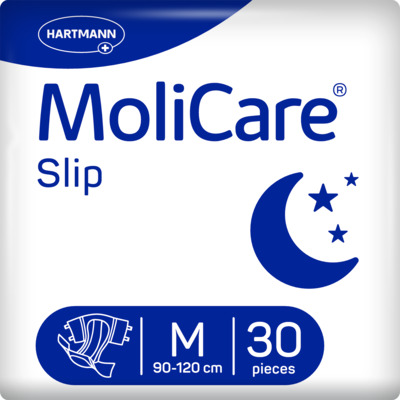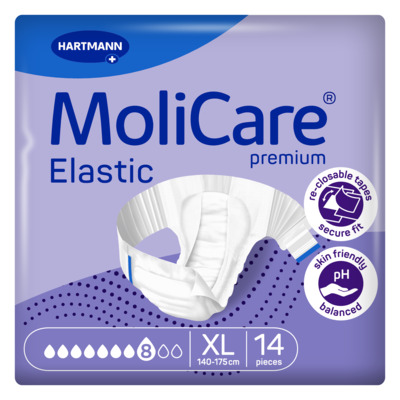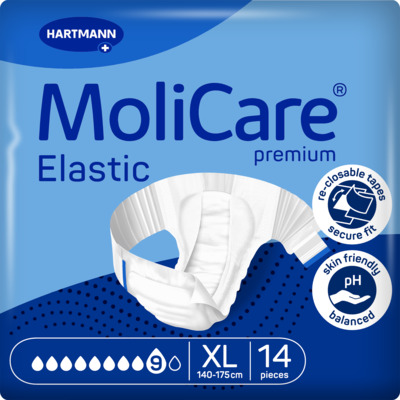Incontinence Advice
Bowel Incontinence Guide: Is Bowel Leakage A Sign of Cancer?
Do you find yourself unexpectedly struggling to control your bowel, and experiencing bowel leakages? This uncomfortable reality might be your body signalling something significant. Bowel incontinence is more than a mere inconvenience; it could be an indicator of deeper health issues, including potential risks for colon cancer. In this article, we will uncover the specifics of the connection between bowel incontinence, leaking bowel fluid, and bowel cancer, as we look into what can cause these problems, identifiable symptoms, and what treatment is available for a more comfortable lifestyle.

Key points:
Understand what bowel incontinence is and the various forms it can take.
Investigate the underlying causes and common symptoms associated with bowel leakage.
Examine the potential link between bowel incontinence and increased colon cancer risk.
Identifying critical moments when medical advice is from a healthcare professional is essential.
Offer practical management strategies to improve quality of life for those affected by bowel incontinence.
What is bowel incontinence?
Bowel incontinence (faecal incontinence), is the loss of bowel control, leading to involuntary stool leakages. This condition can range from occasionally leaking a small quantity of stool while passing gas to having a complete loss of bowel control.
Causes
The causes of bowel incontinence are varied, including nerve damage, muscle damage, or both. Conditions such as diabetes, childbirth, and neurological disorders like multiple sclerosis or spinal injuries can impair the nerves or muscles controlling bowel movements. Chronic constipation can also contribute to this condition by stretching and weakening the muscles meant to hold stool, leading to what is known as overflow incontinence.
Is bowel leakage a sign of cancer?
While bowel leakage itself is not a definitive sign of cancer, it can be accompanied by other symptoms that are more serious. Bowel incontinence paired with symptoms such as unexplained weight loss, persistent abdominal pain, or visible blood in the stool should prompt an immediate medical consultation with a healthcare professional.
Symptoms of bowel leakage
Persistent changes in bowel habits, such as ongoing diarrhoea or constipation, can indicate colon cancer, especially if accompanied by signs of blood in the stool. These symptoms necessitate further medical evaluation, as they may hint at the presence of tumours in the colon.
Causes of bowel leakage
Muscle or nerve impairments are common culprits behind bowel leakage. Such damage can be due to:
Childbirth: Vaginal deliveries can damage the muscles or nerves around the anus, leading to faecal incontinence.
Ageing: As we age, the muscles and nerves that help control bowel movements can weaken, increasing the risk of leakage.
Chronic conditions: Diseases like diabetes or multiple sclerosis can affect nerve function, exacerbating incontinence.
Inflammatory bowel disease (IBD): Disorders like Crohn's disease and ulcerative colitis can cause significant bowel distress, leading to incontinence.
Radiation therapy: Treatment for other cancers can inadvertently cause inflammation in the bowel, contributing to leakage.
Irritable bowel syndrome (IBS): This common disorder can disrupt bowel habits, increasing the risk of incontinence, and is often long term, causing many to wonder, how long does irritable bowel syndrome last?
Gastrointestinal obstruction: Blockages in the gastrointestinal tract can lead to overflow incontinence, where stool leaks past a blockage.
Risk factors for colon cancer
Identifying these risks can help in early detection and management.
The majority of people diagnosed with colon cancer are over 50, although rates in younger individuals are rising., hence why it is important to maintain a healthy lifestyle for over 50s.
A family history of colon cancer significantly increases your risk, emphasising the need for regular screenings if you have a first-degree relative with the disease.
Those with a history of inflammatory bowel disease (IBD) or colorectal polyps are more susceptible to developing colon cancer.
Obesity and a diet high in red and processed meats are known contributors to the risk of developing colon cancer.
Common symptoms of colon cancer
Recognising the symptoms of colon cancer can lead to earlier diagnosis and better outcomes.
Rectal bleeding: The presence of blood in the stool, whether bright red or dark, should never be ignored as it is often one of the first signs of colon cancer.
Abdominal pain: Ongoing abdominal pain or discomfort, such as cramps that don’t go away, could indicate colon cancer.
Unexplained weight loss: Losing weight without trying can be a symptom of several cancers, including colon cancer.
Fatigue: Persistent fatigue that does not improve with rest can also be a symptom of colon cancer.

Bowel leakage and colon cancer
While bowel leakage is not typically a direct indicator of colon cancer, it can be associated with the disease in certain contexts. If bowel leakage is persistent, worsens over time, or is accompanied by other symptoms like rectal bleeding or abdominal pain, seek professional advice immediately.
When to see a healthcare professional
It's crucial to seek medical advice if:
Bowel leakage is accompanied by other alarming symptoms like abdominal pain or rectal bleeding.
The leakage has started suddenly and persists or worsens over time.
There is a significant impact on your quality of life, including social interactions and daily activities.
Diagnosis of bowel leakage
Upon having a medical appointment with your healthcare professional, they will begin a thorough diagnosis to determine the root cause of bowel leakage, and whether it could be tied to bowel incontinence or something more serious. Any of the following tests below will help to develop an understanding of the causes:
Rectal examination: This initial assessment checks for abnormalities, damage, or infections in the anal and rectal areas.
Anorectal manometry: By inserting a flexible tube with a balloon into the rectum, this test measures the pressure and function of the anal sphincter muscles, providing insight into the structural and functional integrity of the lower digestive tract.
Imaging studies: Techniques such as MRI or endoanal ultrasound offer detailed images of the anal and rectal structures, helping to identify specific issues like muscle tears or internal damage that might not be apparent during a physical examination.
Lifestyle changes
After visiting your healthcare professional, they will request that you manage all forms of bowel movements and leakages for the next few weeks to see if effects lessen or worsen. In order for this to work, you may be required to follow the instructions listed below.
Medications: To manage symptoms, healthcare professionals might prescribe medications that control diarrhoea or laxatives to alleviate constipation.
Dietary changes: A fibre-rich diet can regulate bowel movements and reduce incidents of leakage, while avoiding foods that trigger symptoms.
Bowel training: This method involves scheduled toilet visits and exercises designed to strengthen pelvic floor muscles and improve anal sphincter control.
Biofeedback therapy: This technique uses electronic devices to monitor the muscle activity around the anus, teaching patients to improve their control.
Surgery: For severe cases where other treatments are ineffective, surgical options like sphincter repair or replacement may be considered.
Regular exercise: Engaging in physical activity strengthens the muscles involved in bowel control and helps overall digestive health.
Stress management: Effective stress management can alleviate symptoms associated with bowel leakage, as stress can exacerbate the condition. Learn about stress indigestion symptoms and what conditions this can provoke.
Regular screening: Early detection through regular screening, such as colonoscopies, increases the likelihood of successful treatment.
Limit alcohol consumption: Reducing alcohol intake can decrease the risk of various cancers, including colon cancer, since alcohol can impact bladder and bowel health greatly.
Quit smoking: Smoking cessation is crucial as it's linked to multiple types of cancer, including colon cancer.
Physical therapy: Kegel exercises strengthen the pelvic floor muscles around the anus and improve symptoms.
Surgical options: For severe cases, procedures like sphincteroplasty or sacral nerve stimulation are considered.
What HARTMANN Direct UK can do to help with bowel leakages
At Hartmann Direct, we are constantly striving to keep our clients and customers safe, using only the best, discreet incontinence products available, with variations from light to heavy incontinence, to meet the needs and requirements for all those living with incontinence, suitable for male incontinence products and female incontinence products of all age groups.
Improving daily life
Living with bowel incontinence can be challenging, but with the right treatment and strategies, many individuals find significant relief. It’s important to address the condition openly and seek help, as many effective solutions are available to manage and sometimes even completely resolve this issue.

FAQs
Is bowel incontinence a normal part of ageing?
Bowel incontinence is not a normal part of ageing. While the risk of developing bowel incontinence increases with age due to weakening muscles and nerves around the anus and rectum, it is not inevitable and can often be treated or managed effectively.
Why is my poop leaking after I wipe?
Poop leaking after wiping can occur due to several reasons, including incomplete bowel emptying, loose stool consistency, or weakened sphincter muscles. It might also indicate issues like haemorrhoids or anal fissures that can disrupt normal bowel movements and control.
What vitamin deficiency causes faecal incontinence?
There is no direct link between a specific vitamin deficiency and faecal incontinence. However, general malnutrition or poor health can contribute to muscle weakness, including the muscles around the bowel, potentially exacerbating incontinence. Ensuring a balanced diet with adequate nutrients is important for maintaining overall bowel and muscle function.
Sources
NHS. (2008) Multiple Sclerosis. [online] Available at: https://www.nhs.uk/conditions/multiple-sclerosis/ [accessed 11/07/24]
Crohn’s and Colitis. (2021) Crohn’s Disease. [online] Available at: https://crohnsandcolitis.org.uk/info-support/information-about-crohns-and-colitis/all-information-about-crohn [accessed 12/07/24]
WebMD Editorial Contributors. (2023) Ulcerative Colitis (UC) WebMD. [online] Available at: https://www.webmd.com/ibd-crohns-disease/ulcerative-colitis/what-is-ulcerative-colitis [accessed 12/07/24]
Pescatori, L. C., & Pescatori, M. (2014). Sphincteroplasty for anal incontinence. Gastroenterology report, 2(2), 92–97. [online] Available at: https://doi.org/10.1093/gastro/gou003 [accessed 12/07/24]

MoliCare® Slip for Night
<h2>Low cost adult nappy</h2> <p>MoliCare Slips for Day and Night are an all-in-one brief or adult nappy for both men and women providing reliable protection for moderate to severe levels of urinary incontinence. These slips are also ideal for use for people with feacal incontinence or double incontinence to provide a containment before cleansing.</p> <p>Skin feels dry and comfortable for improved well being thanks to the absorbent core with locks in liquids and neutralises odours. Safe and secure fit close to the body, skin friendly and dermatologically tested.</p> <h2>Choosing your size</h2> <p>Measure the waist at the largest width between the waist and hips and select the product size.</p> <p>Medium: 90 – 120cm</p> <p>Large: 120-150cm</p>
MoliCare® Premium Elastic 5 Drops
<p>ElastiFIX<br /> The ElastiFIX Sysem, a unique combination of patented, elasticated side panels and re-closable tapes, allows for easy handling and secure fixation. For maximum safety and security, MoliCare Premium Elastic offers optimum fit in every position and excellent absorbency capabilities.</p> <p>Easy to fit, comfortable to wear<br /> Two side panels and 2 re-closable tapes for easy handling and secure closing.</p> <p>20% Faster Application<br /> Approximately 20% faster application as well as easier and more ergonimic handling for caregivers.</p> <p>- Unique 3-Layer Absorbent Core<br /> Curly fibres treated with citric acid allow for quick absorption, directing urine inwards and neutralising the pH. Next super absorbent polymers (SAP) turn liquid into gel and securely store urine inside the pants while also binding odours. The bottom layer consists of celullose fluff absorbing any excess urine and a water proof backsheet to prevent any urine leaking onto clothing. </p> <p>- Anti-Leakage for Protection<br /> Water repellent, anti-leakage cuffs inside the pants, mean that urine can't escape from the sides and urine is directed inwards to the absorbent core where is can be safey stored.</p> <p>- Unique pH 5.5 Skin Protection<br /> Intimate skin is delicate and prone to redness and irritation especially when emptying the bladder frequently. MoliCare products neuralise urine to a skin friendly pH helping to protect the skins natural protective surface, the acid mantle. </p> <p>- Wear Time <br /> Because MoliCare products are made from high quality materials, safely lock away urine and are pH balanced, they can be worn for as long as you feel comfortable, all day if required, keeping you safe and dry. </p> <p>- Odour Neutralisers <br /> MoliCare pants don't mask odours, they neutralise them. MoliCare neutralise odours through the Super Absorbent Polymers in the 3-layer absorbent core helping to prevent any unpleasant smells. <br /> </p>
MoliCare® Premium Elastic 8 Drops
<h2>New and improved MoliCare® Premium Elastic 8 Drops</h2> <p>Some of the key benefits the new MoliCare® Premium Elastic include:</p> <ul> <li>Leakage protection with new absorbent core and cuffs.</li> <li>Instant-dry feeling due to fast absorbent channel.</li> <li>Healthy skin, helping to prevent skin irritation.</li> <li>Suitable for men and women of all age groups.</li> <li>Elasticated side panels help prevent leakages.</li> </ul> <h2>Stress-Free Incontinence Care</h2> <p>When it comes to managing incontinence, there is a wide range of products available to cater to different levels of need. Among these options are incontinence slips, which consist of a large absorbent slip supported by an attached fixation system, commonly known as adult nappies.</p> <h2>Leakage Protection</h2> <p>Living with incontinence means wearing an appropriate product throughout the day, with occasional changes. That's why selecting the right solution that guarantees comfort, mobility, and easy changeability is crucial. The MoliCare® Premium Elastic 8 Drops (ISO 2356) is an all-in-one quality disposable adult nappy featuring two elasticated side panels and two re-closable hook and loop tapes on each side.</p> <p>This product caters to a wide spectrum of incontinence levels, ranging from moderate to severe bladder weakness and/or faecal incontinence. By wearing these incontinence slips, instead of regular underwear, people will experience a reassuring, comfortable fit, thanks to the elasticated side panels. Whether the wearer is active and independent or bedbound and dependent, they can enjoy full mobility and comfort. Water repellent, anti-leakage cuffs means that urine can’t escape from the sides urine is directed inwards to the absorbent core where it can be safely stored.</p> <h2>Choosing your Size</h2> <p>Measure waist at the largest width between the waist and hips. Select the product size based on the below sizing.</p> <p>Small: 28-35 inches (70-90cm)</p> <p>Medium: 33-47 inches (85-120cm)</p> <p>Large: 45-57 inches (115-145cm)</p> <p>Extra Large: 55-69 inches (140-175cm)</p> <p>HARTMANN Direct offers a fast delivery straight to your doorstep. Our products are developed with your convenience and comfort in mind, and we stand behind that quality with a price promise match. Additionally, orders exceeding £50 qualify for free delivery. If you require further assistance or guidance in selecting the right MoliCare® products, our friendly customer service team is just a phone call away.</p> <p> </p>
